Thousands of Iranian students have been chanting "death to America" at government organised rallies on the eve of new sanctions.
The events, timed to coincide with the 39th anniversary of the seizure of the US embassy in Tehran, were broadcast live on state TV as America and Israel flags were burned.
An effigy of Uncle Sam and pictures of Donald Trump were also torched.
US sanctions targeting Iran's oil sales and banking sectors are being restored on Monday as part of a wider effort by Mr Trump to force Tehran to halt its nuclear and ballistic missile programmes outright.
They were opposed by other signatories to the 2015 nuclear deal partly brokered by the Obama administration – Britain, France, Russia, China, Germany and the EU.
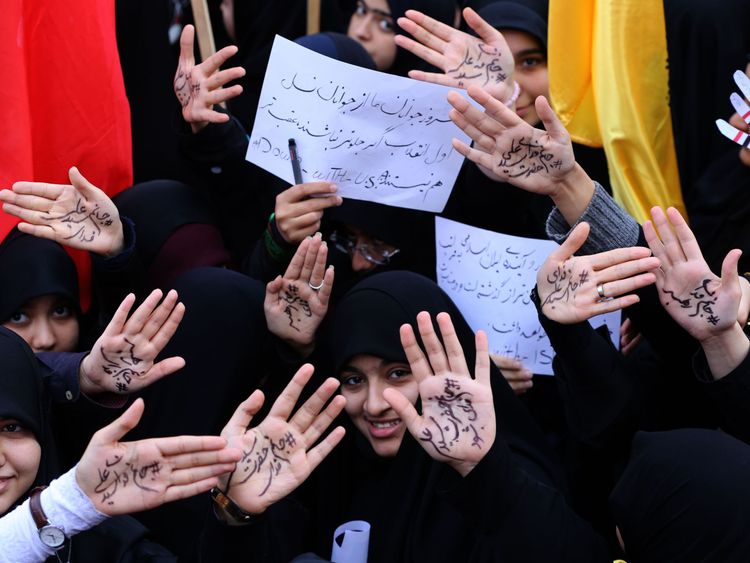
In Tehran, protests focused on the area around the leafy compound where the embassy used to be housed which has since been turned into a museum of "US espionage".
Iranian state media claimed millions of people had turned out for rallies in most cities and towns around the country – a figure that has not yet been independently verified.
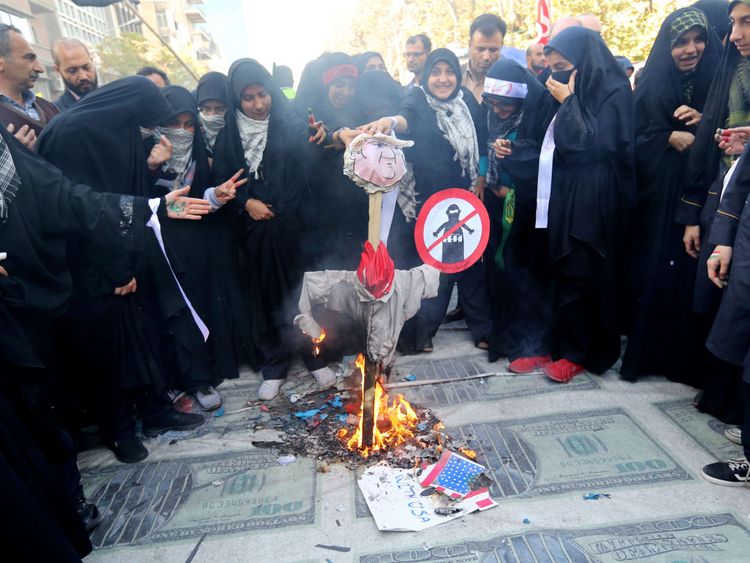
Rallies at which demonstrators loyal to the hardline Iranian regime chant "death to America" or "death to Israel" in English are frequent, but analysts say they have recently been fuelled by Mr Trump's plans to reimpose sanctions.
Under the 2015 deal, most of the international financial and economic sanctions on Iran were lifted in return for Tehran curbing its disputed nuclear activity under UN surveillance.
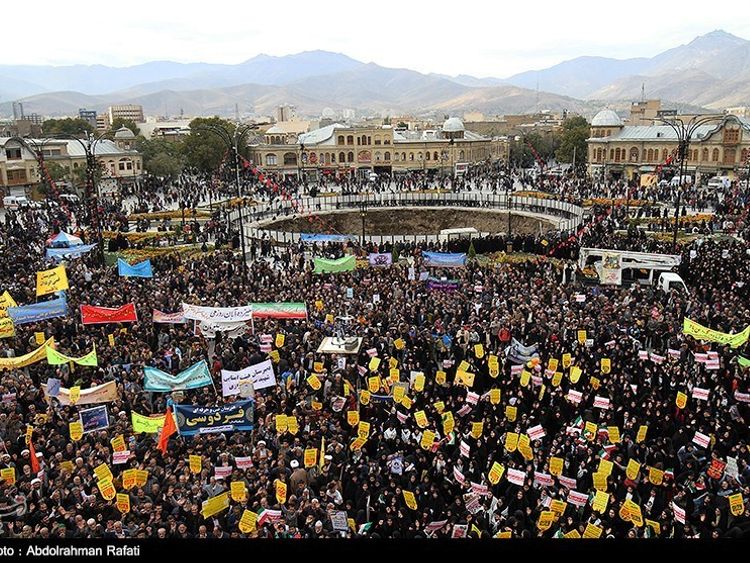
The deal was greeted at the time with relief and excitement by Iranians who had seen their economy crushed by the restrictions on trade.
Major general Mohammad Ali Jafari, the top commander of Iran's elite revolutionary guards, said at the Tehran rally that Iran would resist and defeat the US's "psychological war".
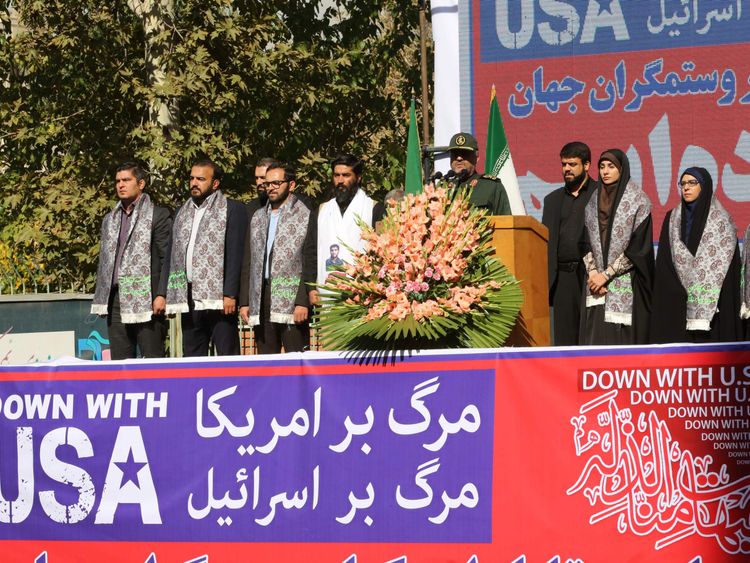
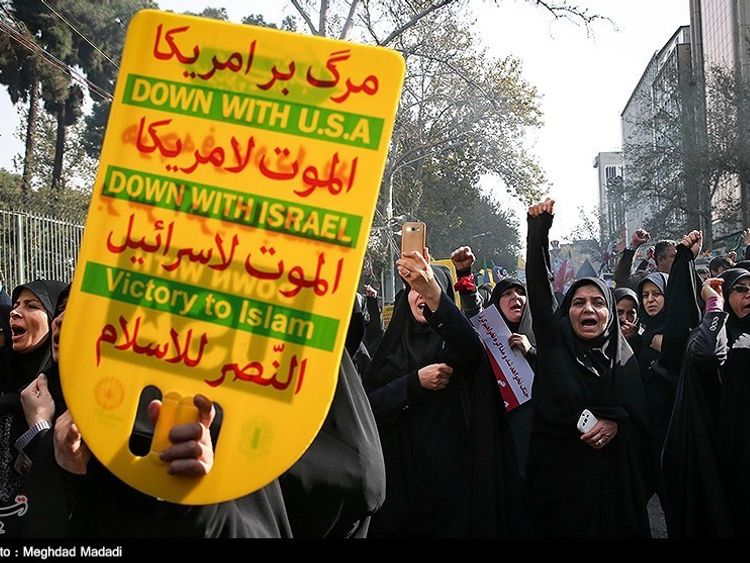
He said: "America has launched an economic and psychological war as a last resort. But America's plots and its plans for sanctions will be defeated through continued resistance."
In a speech on Saturday, Iran's Supreme Leader Ayatollah Khamenei said Mr Trump's policies faced opposition around the world.
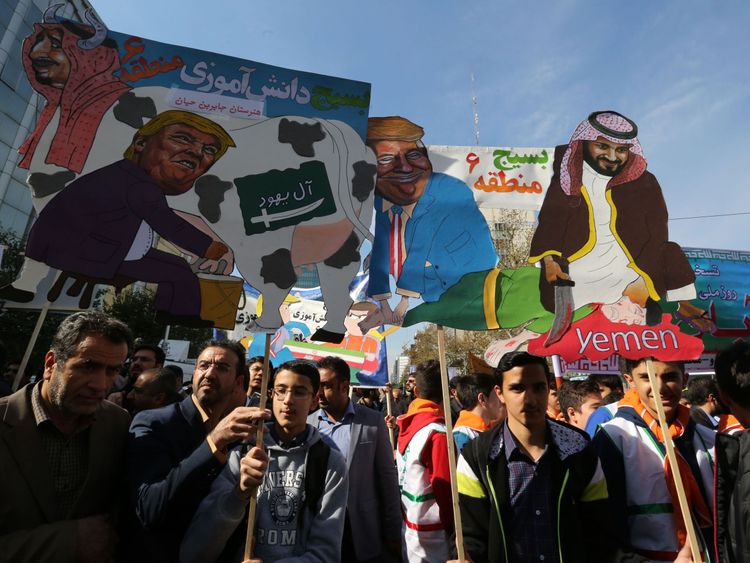
He said: "America's goal has been to re-establish the domination it had (before 1979) but it has failed. America has been defeated by the Islamic Republic over the past 40 years."
The US Embassy hostage crisis took place about nine months after the start of Iran's Islamic revolution which saw the Ayatollah Khomeini brought to power.
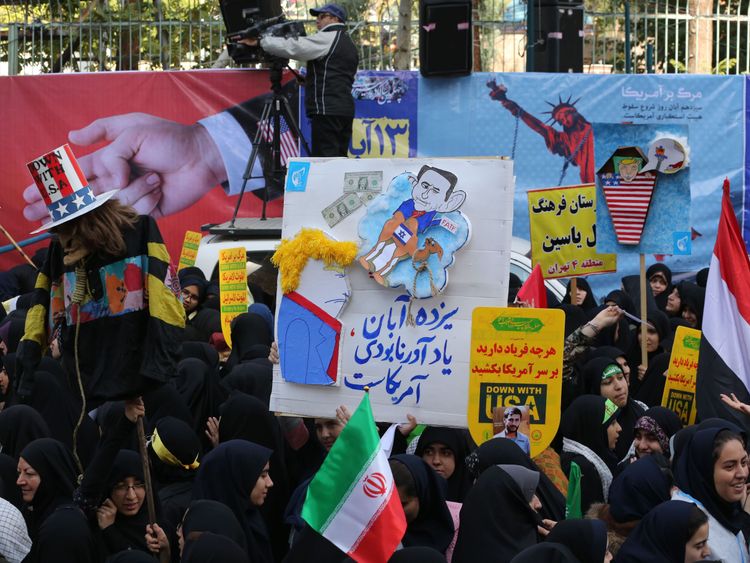
Fifty-two Americans were held captive for 444 days after Iranian students stormed the building, leading the US to cut off all diplomatic relations.
The threat of sanctions has seen the Iranian rial plummet and business owners have said they are afraid of what they will do to the country's economy.
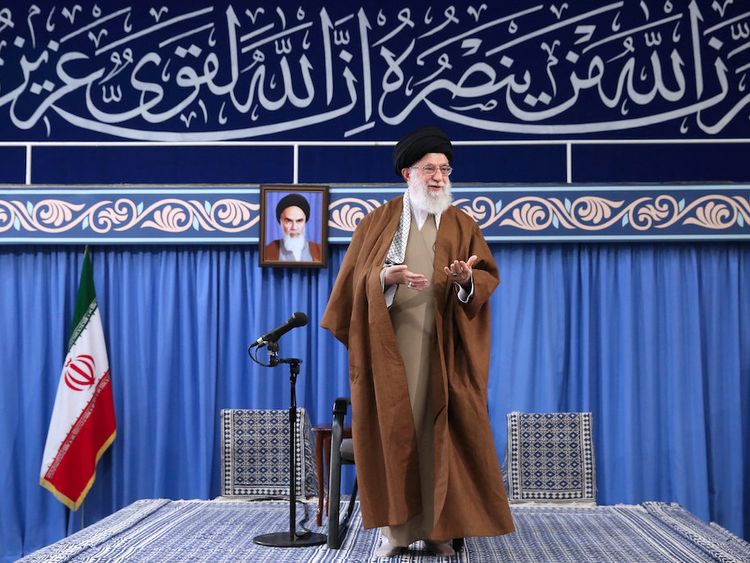
Heidar Fekri, a 70-year-old who has been selling industrial equipment from his small store in a Tehran bazaar since before the revolution, said he is not sure he can survive.
"My shelves are empty, my warehouses are empty and soon I will have to close the doors," he told AFP. "This has been my entire life – I won't survive long after the doors close."
[contf] [contfnew] 
Sky News
[contfnewc] [contfnewc]






